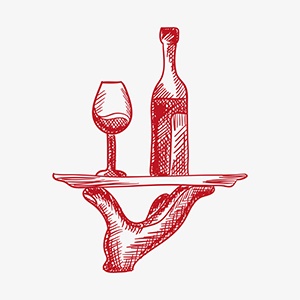

What is alcoholism?
Alcoholism or alcohol dependence is a disease that involves physical and psychological dependence addiction to the drug alcohol. It’s chronic, progressive and often fatal. It’s when alcohol consumption reaches a level where it seriously interferes with your health, and social or occupational functioning. Alcoholics may continue to abuse alcohol despite the numerous negative consequences of the disease.
Causes and risk factors
There is no definite cause of alcoholism; however, several factors may play a role in its development.
- Heavy drinking over time. Drinking steadily and heavily over time can lead to dependence by altering the levels of certain brain chemicals, causing you to crave alcohol to restore positive feelings or avoid negative ones. At-risk drinkers are men who consume 15 or more drinks a week, women who consume 12 or more drinks a week, or anyone who consumes five or more drinks per occasion at least once a week.
- Genetics. Your genetic make-up may cause brain chemical variations and make you susceptible to alcohol dependency. Genetic factors may account for about half the total risk for developing alcoholism. Although your risk is higher if you had a parent who abused alcohol, a child of an alcoholic parent won’t automatically develop alcoholism, and a person with no family history of alcoholism can develop the disease.
- Other psychiatric disease. There’s a high incidence of other psychiatric disease in alcohol dependence (called dual diagnosis).
- Psychological factors. Some people drink to relieve stress, anxiety, depression or low self-esteem. Certain clinical emotional disorders, like depression, increases your risk for alcoholism. Alcoholism sometimes develops from efforts to self-treat a mental illness.
- Social and cultural factors. Your social environment, which includes peer pressure, availability of alcohol and social acceptance of its use, may also encourage the development of alcoholism.
- Age. People who start drinking in their teens or earlier are at higher risk of becoming alcoholics.
- Gender. Men are more likely to become alcoholics, although the incidence of alcoholism among women has increased.
Symptoms and signs of alcoholism
- Craving: a compulsion to drink.
- Impaired control: signs that you’ve lost control over alcohol include trying, but failing to limit or reduce your drinking, and spending a great deal of time and energy acquiring, using or suffering the effects of alcohol.
- Tolerance: if your body is alcohol-dependent, you might need to drink increasing amounts of alcohol to feel its effects.
- Continued use of alcohol despite knowing it’s is harming you.
When to call the doctor
If you suspect that you or someone you know might have an alcohol problem, it’s time for a doctor to step in. He can determine whether you’re dependent on alcohol, and offer help. Go to an emergency room or call for help if you severe confusion, seizures, bleeding, or other health problems from drinking.





 Publications
Publications
 Partners
Partners










